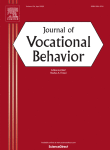@Master @SergeantIncel @Gymcelled @ThoughtfulCel @foidologist @FullTimeLoser
- - - - - - - - - - - - - - - - - - - - - - - - - - - - - - - - - - - - - - - - - - - - - - - - - - - - - - - - - -
Women are born into privileges that they wouldn't otherwise enjoy had they been born a male, but exactly how far can the power of a vagina get you in life? How much privilege do women truly have? What are your chances of losing at life as a women?
0.17% Of the Population is Homeless, when accounting for gender differences the amount of Homeless females drops to an astonishing 0.3%
View attachment 399199
But what percentage of Them are Unsheltered?
View attachment 399201
View attachment 399202
View attachment 399203
View attachment 399204
In the Worst Case Scenario ONLY 1.26% OF FEMALES GO UNSHELTERED
, and in the Best States for Women That percentage is 0.54%
AS A WOMEN IN THE UNITED STATES, YOU HAVE A O.54 --> 1.26% CHANCE OF GOING HOMELESS.
IT IS WORTH MENTIONING THAT THIS STATISTIC IS TAKEN FROM INDIVIDUAL HOMELESS PEOPLES, AND DOESN'T ACCOUNT FOR THOSE WHO HAVE OTHER HOUSING FROM FRIENDS OR RELATIVES, SO THE AMOUNT OF UNSHELTERED WOMEN COULD BE EVEN LOWER.
Men are 10 TIMES more likely to die in the workplace.
~~~
Looking at 139 separate occupations and discrete industries, an obvious pattern quickly emerges: the safest workplaces are indoors and the safest occupations frequently require education beyond high school. The most deadly occupations, on the other hand, are outside and often involve operating equipment. This largely drives the huge difference in workplace fatalities between men and women, with 4,761 men dying on the job compared to 386 women in 2017. The fatality rate for men was about 10 times that of women: 5.7 per 100,000 vs. 0.6 per 100,000 for women.
~~~
Meaning that as a women, you have a
0.00050226409% Chance of Dying at Work
From an experiment in the Justice System and Law Enforcement:
More than 500 judges from a state court system (68 percent men, 30 percent women, and 2 percent unidentified) participated in the study in an effort by that court system to address gender bias. The court system wasn't identified for confidentiality reasons.
More than 500 lay people (59 percent men, 41 percent women) also were recruited online to take part in the study.
The judges and lay people analyzed two mock court cases, including a child custody case and a sex discrimination lawsuit where the plaintiff was presented as either a man or woman. The participants also completed surveys about their beliefs in traditional gender roles, such as stereotypes that women are more interested in raising children than in their careers and that children are better off if their fathers are the primary breadwinners for the family.
In the divorce case, the father and mother both sought primary custody of their two children. Both spouses worked full-time jobs and sometimes had conflicts with caring for their children. Judges and lay people who supported traditional gender roles allocated more custody time to the mother than to the equally-qualified father, but the judges were even more biased in favoring the mother than were laypeople.
Only three percent of the judges in the sample gave the father more custody time than the mother.
In the exact same scenario as a man, a women has only a 3% chance of losing custody.
But what about in cases that
do not involve child
custody?
Scholars
have found that
women receive shorter
sentences for sex
crimes than men.
A 2014 study suggests that federal courts are more lenient on femaledefendants in general. ... Women were less likely to be detained before trial. They were 46 percent less likely than men to held in jail prior to a trial.
From the 2014 Study:
In general, it was found that females were treated more leniently by the court system, although specific groups of female defendants were found to experience cumulative disadvantage across the criminal court system.
Another Study shows that
Women are More Likely to be Promoted into Management
Positions then Men "B-buh, but the pay-gap...":
View attachment 399208
Despite this however, other studies show that women have an increased chance of having anxiety and make poorer leaders then men:
There is an ongoing debate about whether and how anxiety level affects behavioral performance in risk and/or ambiguous decision-making. According to the literature, we suggest that gender difference might be a confounding factor that has contributed to heterogeneous findings in previous studies...

www.frontiersin.org
The majority of Relationships are ended by Women, with them accounting for 76% of breakups:
YouGov, an online market research and data analytics firm, surveyed around 1000 adults who have been or still are in a long-term relationship. The participants were asked questions related to their love life including, how many long-term relationships they have been in so far? To how many partners they have said ‘I love you’? Did they ever have
a break-up in their long-term relationship? If yes, then who ended it?
Going by the statistics, a whopping 76 per cent of the female participants admitted ending their long-term relationship
Digging deeper into this topic,
84 per cent men revealed that they were dumped in their previous relationship
--Someone isn't being honest here... virtue signalling gender ?
?
https://www.sup.org/books/title/?id=1844 -- There's even a whole book on how women have leveraged the power of their vaginas to get high ranking political positions in Britany and used it to harm disenfranchised men.
Conclusion: As a female you have an increased chance of being promoted in the workforce despite showing lesser performance, holding power in and ending relationships. You have a lower chance of being homeless, being homeless and unsheltered
and an advantage in the legal system. You have the power to abort a baby.
What do the statistics say?
"Female privilege
is very real, and very big, as a women, it's damn near impossible to lose"
BONUS: GENDER EQUALITY HAS BEEN SHOWN TO INCREASE CRIME RATES AMONG WOMEN, https://apolitical.co/en/solution_article/has-gender-equality-made-women-commit-more-crimes
SOURCES:
Judges may be just as biased or even more biased than the general public in deciding court cases where traditional gender roles are challenged, according to a new study.
www.sciencedaily.com
Homelessness in America is largely a gendered phenomenon. Men are the overwhelming majority individuals counted in the HUD-required annual Point-in-Time Count. They are also more likely...

endhomelessness.org

www.bls.gov
2015 study published in the Journal of Criminal Justice that looks at gender disparities in pretrial release and in jail sentencing decisions.

journalistsresource.org
While various perspectives have been offered to explain why females might be treated more leniently by the court system than males, very few studies h…

www.sciencedirect.com
The research examined the likelihood that, relative to men, women would more often attain management positions due to promotion versus hiring. Financi…

www.sciencedirect.com
Going by the statistics, a whopping 76 per cent of the female participants admitted ending their long-term relationship and 62 per cent men confessed doing the same. Digging deeper into this topic, 84 per cent men revealed that they were dumped in their previous relationship and 67 per cent...

timesofindia.indiatimes.com
There is an ongoing debate about whether and how anxiety level affects behavioral performance in risk and/or ambiguous decision-making. According to the literature, we suggest that gender difference might be a confounding factor that has contributed to heterogeneous findings in previous studies...

www.frontiersin.org
There is an ongoing debate about whether and how anxiety level affects behavioral performance in risk and/or ambiguous decision-making. According to the literature, we suggest that gender difference might be a confounding factor that has contributed to heterogeneous findings in previous studies...

www.frontiersin.org
This book examines the many different ways in which women achieved public standing and exercised political power in England from the middle of the eighteenth century to the present. It shows how rank, property, and inheritance could confer de facto power on privileged women, and how across the...

www.sup.org
In some countries, the gender crime gap is narrowing

apolitical.co















